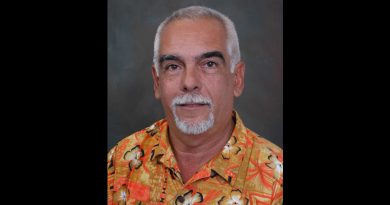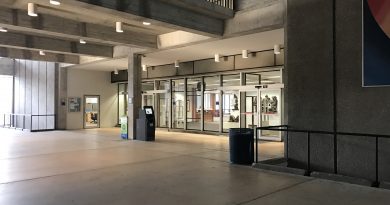Former Student Pleads Guilty To Accusations Of Stealing More Than $1.3 Million
A former computer science student at Miami Dade College pled guilty in federal court on Dec. 10 to leading a fraud ring accused of stealing more than $1.3 million in counterfeit checks.
Carlos Miguel Rodriguez, 24, is awaiting sentencing on one count of conspiracy to commit bank and wire fraud and one count of aggravated identity theft.
Sentencing is scheduled for Feb. 22. He faces a maximum of 32 years in federal prison.
Court documents state that Rodriguez used cryptocurrency on the dark web to buy stolen identities, forged checks using those names and cashed the money using stolen IDs from Arizona and Utah.
Rodriguez and nine others have either been indicted or convicted in connection with the case, according to court documents. The group sometimes made more than $100,000 in a single weekend.
College officials said Rodriguez is not currently enrolled in classes, and cited the Family Educational Rights and Privacy Act for not being able to say when he was last enrolled. He has been at the Federal Detention Center, Miami since Oct. 2.
Police raided Rodriguez’s home in West Little River in 2018 as part of an investigation into an illegal cock-fighting ring. He was never charged in that incident.
However, authorities believed the home doubled as a headquarter for illegal counterfeit check cashing after finding a stack of forged checks with Rodriguez’s fingerprints and two disposable phones, among other items.
According to a cooperating witness, Rodriguez planned to tell police his lavish lifestyle came from money his mother earned as a stripper in Doral if he were questioned. He was arrested in 2018 in connection with the scheme.
“Rodriguez’s callous disregard for the people he victimized establishes that he will remain a threat to the community if released,” said U.S. Attorney Ariana Fajardo Orsham in court documents. “That Rodriguez continued to engage in the same illegal conduct even after being arrested demonstrates that he is not likely to be deterred from future criminal conduct by the pending charges.”
Authorities said that Rodriguez purchased bank account information of victims on the dark web, including name, addresses and social security numbers, and would call banks to change the phone number on accounts to a disposable phone he possessed.
Rodriguez and other conspirators would download images of the original account holder’s previously cancelled checks as a template to create their own, sometimes using the Wi-Fi of a hotel room that wouldn’t be traced to them, according to court documents.
After Rodriguez created the forged checks, court documents state, another individual attempted to cash them. If the bank teller became suspicious, they called the number associated with the account, which Rodriguez would answer to approve the transaction.
Rodriguez and the ring deposited the cash into several bank accounts, including a fake cleaning company called Page Cleaning Company, according to court documents.




